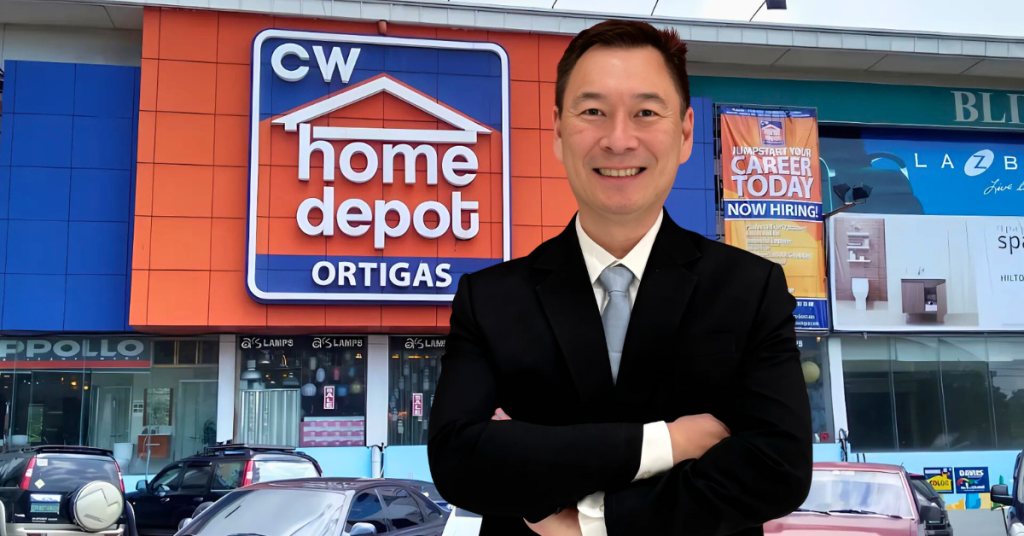Ferdinand Co didn’t start out as a retail mogul. Long before CW Home Depot became a trusted name among Filipino homeowners, contractors, and developers, Co and his father, Engr. Napoleon Co, were focused on a different mission: fixing the cement supply crisis.
“We are committed to providing high-quality cement with superior compressive strength, helping meet the rising demands of infrastructure and building projects,” Co shared in an interview with Financial Adviser PH.
A Family Start, a Market Gap
Co’s entrepreneurial journey began after graduating from Ateneo de Manila University in 1989, when he joined his father in setting up Cohaco Merchandising and NGC Marketing. Their focus? Importing high-quality cement to address chronic shortages and strength inconsistencies in the market.
But the challenges ran deeper than the product. Philippine ports were inefficient, logistics were costly, and storage capacity was limited.
“We encountered firsthand the continuing inefficiencies at major ports—limited facilities, frequent demurrage, high port handling costs, and delays,” Co recalled.
So, they built the infrastructure themselves.
Sinisian Lemery Port and Industrial Park Corporation: A deep-sea port designed to handle large vessels and accelerate vessel discharge.
Lemery Cement Silo Tank Corporation: A bulk-import facility for Portland cement and GGBFS (Ground Granulated Blast Furnace Slag).
Lemery Oil Terminal Corporation: Addressing the lack of fuel storage capacity in CALABARZON.
“Each company was born from a real industry demand, driven by our desire to solve logistical and material challenges at scale,” Co said.
From Trading to Transforming Retail
Ferdinand Co’s most visible impact came later—when a personal frustration sparked a bold idea.
“While building my home, I had to travel from Quezon City to Manila just to source the right materials—and still ended up with limited options,” he shared.
That challenge led to the launch of Ortigas Home Depot, a joint venture with Cebu Oversea Hardware and Westpoint Industrial. The concept: a modern, air-conditioned, one-stop-shop for building and finishing materials—tiles, fixtures, paint, lighting, kitchen systems, furniture—all under one roof.
It wasn’t just retail—it was a new format in the Philippine hardware industry.
Scaling a National Brand
CW Home Depot rebranded from Ortigas Home Depot and began expanding its reach across Metro Manila and Luzon, including branches in Alabang, Balintawak, Commonwealth, Pampanga, Imus, Sta. Rosa, Taytay, and soon, Silang, Cavite.
But scaling wasn’t just about opening stores. It meant understanding the Filipino homeowner, empowering walk-in customers and professionals alike, and providing price assurance through the Home Price Guarantee.
“If a customer was able to find the same item sold at any similar modern retail store, we gladly match the prices,” Co explained. “This assures that customers are guaranteed competitive pricing.”
Legacy Built on Purpose
For Co, CW Home Depot is more than a business. It’s a mission.
“Why not be able to earn money for everyone while also creating sustainable employment and helping the Philippine economy?” he said. “At the same time, we were able to address the needs of our customers by providing them value and quality in services and products.”
Today, CW Home Depot supports thousands of jobs, fosters micro-enterprise through its concessionaire and tenant model, and makes homebuilding easier for Filipino families.
“It’s not just about profit,” Co emphasized. “It’s about making homebuilding easier for Filipinos and creating long-term value for the community.”
As the construction and retail sectors continue to evolve, CW Home Depot stands as a case study in entrepreneurial vision, logistical innovation, and purpose-driven growth—built from the ground up, one decision at a time.
![]()



